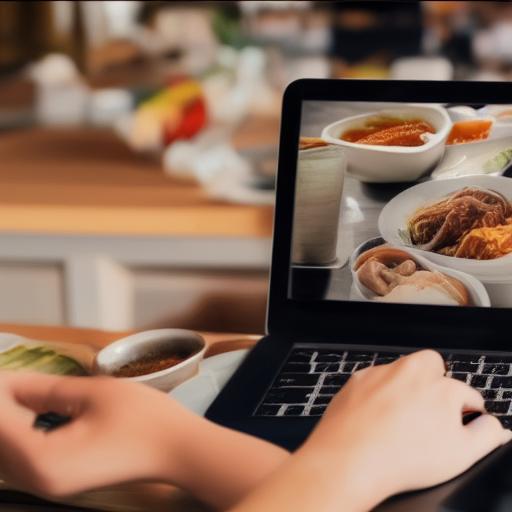
Opening a Chinese restaurant is a dream for many, a vibrant tapestry of delicious aromas, sizzling woks, and the clatter of happy customers. But beneath the surface of this culinary adventure lies a crucial, often overlooked, aspect: licensing. Navigating the complex world of permits and regulations can be daunting, and making mistakes can lead to costly delays, fines, and even the heartbreaking closure of your new venture. This article will illuminate five common licensing mistakes to avoid when opening your Chinese restaurant, equipping you with the knowledge to build a thriving and legally compliant establishment.
1. Ignoring Local Zoning Laws: Your Restaurant’s First Hurdle
Imagine finding the perfect space, a charming building with ample parking and a beautiful interior, only to discover you can’t actually open a restaurant there. This nightmare scenario is all too real for aspiring restaurateurs who fail to investigate local zoning laws.
What Are Zoning Laws?
Zoning laws are regulations that dictate how land and buildings can be used within a specific geographic area. These laws are typically established at the city or county level and aim to maintain community character, manage traffic flow, and ensure the safety of residents. For your Chinese restaurant, zoning laws specify whether a commercial kitchen, a restaurant, or a public dining area is permitted in your chosen location.
Why Zoning Matters: More Than Just a Location
Understanding zoning isn’t just about whether you can open; it impacts many operational aspects too:
- Permitted Uses: Is a restaurant classified as a permitted use, a conditional use, or not allowed at all in the zone?
- Parking Requirements: Many zoning laws mandate a minimum number of parking spaces for restaurants based on their size or seating capacity. Insufficient parking can prevent you from getting approval or lead to customer frustration.
- Building Codes: Zoning laws often tie into building codes that dictate construction standards, fire safety, and accessibility requirements.
- Signage: Size and style of your restaurant’s signage are also regulated, limiting your visibility if you don’t follow the rules.
- Operating Hours: Some zoning laws restrict hours of operation, which could impact your ability to serve late-night diners.
How to Avoid Zoning Mishaps: A Step-by-Step Guide
- Research Before You Lease: Before signing a lease or buying property, contact your local zoning or planning department. Ask for a zoning map and a list of permitted uses for the specific address.
- Seek Professional Guidance: Consider hiring a zoning consultant or attorney specializing in real estate development. They can interpret complex regulations and help you navigate the process.
- Double-Check Conditional Uses: If your chosen site requires a conditional use permit, understand the additional steps, community review processes, and potential limitations.
- Plan for Parking: Assess parking needs realistically, considering employees and customer traffic. If there aren’t enough spots, research options like shared parking or agreements with nearby lots.
- Don’t Assume: Don’t assume that because another restaurant was previously in the location, your establishment will automatically be approved. Zoning laws can change.
Example: A hopeful entrepreneur leased space in a residential area, thinking the old grocery store there would make a great Chinese takeout joint. The zoning laws did not permit restaurants. They spent thousands of dollars on renovations before being forced to move out, experiencing significant financial losses. By checking zoning laws first, they could have avoided that painful pitfall.
2. Overlooking Health Department Permits: Food Safety First
A clean and safe kitchen isn’t just a matter of pride; it’s a legal requirement. Health department permits are non-negotiable for any restaurant, but especially critical when handling diverse ingredients and high-volume cooking, as often seen in Chinese cuisine.
The Role of the Health Department
The health department’s primary goal is to protect public health by ensuring that food establishments adhere to strict hygiene and safety standards. They conduct inspections to confirm compliance with regulations regarding:
- Food Handling and Storage: Proper storage temperatures, safe food preparation techniques, and preventing cross-contamination are critical.
- Sanitation Practices: Regular handwashing, dishwashing, and overall cleanliness of the kitchen and dining areas.
- Employee Training: Staff must be trained in safe food handling practices and hygiene protocols.
- Pest Control: Procedures to prevent and eliminate pests like rodents and insects.
- Equipment Standards: Ensuring cooking equipment, refrigerators, and other appliances meet safety requirements.
Why Health Department Permits Are Crucial
Failing to obtain the required health permits or neglecting safety standards can result in:
- Delayed Opening: The health department can halt your operations if you haven’t secured the proper permits.
- Fines and Penalties: Violations can incur substantial fines and legal repercussions.
- Restaurant Closure: Severe or repeated violations can lead to temporary or permanent closure.
- Damaged Reputation: Negative publicity resulting from health code violations can severely damage your reputation and hurt your customer base.
- Public Health Risks: Ignoring health guidelines can cause food poisoning outbreaks, potentially endangering your customers.
Securing Health Permits: A Detailed Approach
- Contact Your Local Health Department: Reach out early to understand specific regulations for your jurisdiction.
- Submit a Plan Review: Before starting any construction or renovations, submit a detailed plan of your kitchen layout, plumbing, and equipment. The health department needs to approve it first.
- Invest in Proper Equipment: Purchase commercial-grade refrigerators, freezers, ovens, and cooking equipment that meets health department standards.
- Implement Food Safety Procedures: Develop and document your food safety protocols and train your staff accordingly.
- Schedule Inspections: Regularly schedule your health department to perform a pre-opening inspection and ensure all requirements are met.
- Maintain Records: Keep detailed records of food temperatures, employee training, pest control measures, and other compliance-related activities.
Example: A new Chinese restaurant in a hurry to open its doors skipped the plan review step. When the health inspector arrived, he immediately identified several violations: insufficient refrigeration capacity, improper hand-washing sinks, and lack of pest control measures. The restaurant was forced to redo parts of the kitchen and incur costs they had not budgeted. By following the health department guidelines, they could have avoided these delays and expenses.
3. Neglecting Alcohol Licensing: A Risky Proposition
Offering alcoholic beverages can significantly boost your restaurant’s revenue and enhance your customers’ dining experience. However, serving alcohol without the proper licenses can lead to severe legal consequences.
The Importance of Alcohol Licenses
Alcohol licenses are permits issued by state and local authorities that grant you the right to sell alcoholic beverages, including beer, wine, and spirits. Each region has unique licensing requirements, fees, and regulations.
Consequences of Unlicensed Alcohol Sales
Selling alcohol without a valid license is illegal and can lead to:
- Heavy Fines: Penalties can be significant and vary by jurisdiction.
- Criminal Charges: You or your staff can face criminal charges for illegally selling alcohol.
- License Denial: If you’re caught illegally selling alcohol, you may have difficulty obtaining a license in the future.
- Restaurant Closure: Your restaurant may be shut down if found operating illegally.
- Insurance Implications: If you cause alcohol-related harm, you might not be covered if you don’t have a proper license.
Obtaining an Alcohol License: A Step-by-Step Process
- Determine Your Needs: Determine what types of alcoholic beverages you intend to serve (beer, wine, spirits). Your license will need to cover each.
- Research State and Local Regulations: Contact your state alcoholic beverage control (ABC) agency and local authorities to understand the specific licensing procedures, fees, and application requirements.
- Complete the Application: Provide the necessary documentation, including your business plan, floor plan, proof of insurance, and personal information.
- Background Checks: Most jurisdictions require background checks for all owners and managing staff.
- Attend Mandatory Training: Some jurisdictions require all servers and managers to complete alcohol server training courses.
- Pay the Fees: Licensing fees can vary significantly and may involve both application and annual renewal charges.
- Pass Inspection: Your establishment may be subject to inspections to ensure you comply with all licensing requirements.
Example: A new Chinese restaurant owner believed they could “test the waters” by offering wine with meals before applying for a license. After an undercover investigation, the restaurant was slapped with a hefty fine, and the owner faced a license denial when finally trying to apply. Waiting for the license would have kept the restaurant safe and compliant.
4. Forgetting Food Handler Permits: The Key to a Safe Kitchen
Even if you have a health permit, you also need to ensure all your staff have food handler permits. These certifications demonstrate a basic understanding of food safety principles and are critical for preventing foodborne illnesses.
What is a Food Handler Permit?
A food handler permit (also known as food handler’s card or certificate) proves that an individual working in a food service establishment has completed an accredited food safety training program. These courses cover essential topics such as:
- Safe Food Handling: Proper techniques for receiving, storing, preparing, and serving food.
- Hygiene Practices: Handwashing procedures, personal cleanliness, and preventing cross-contamination.
- Temperature Control: Storing food at correct temperatures to prevent bacterial growth.
- Allergen Awareness: Understanding food allergies and how to prevent allergic reactions.
- Cleaning and Sanitation: Proper procedures for cleaning and sanitizing equipment and surfaces.
Why Food Handler Permits Matter
Food handler permits protect your customers and your business:
- Prevents Foodborne Illnesses: Trained staff can minimize the risk of food contamination and illness outbreaks.
- Ensures Legal Compliance: Many jurisdictions require all employees to have valid food handler’s certificates to operate.
- Promotes Safety Culture: Demonstrating that you prioritize food safety enhances your reputation and builds customer confidence.
- Reduces Liability: Proper training reduces your restaurant’s liability in the event of a foodborne illness incident.
Obtaining Food Handler Permits: A Simple Process
- Identify Local Requirements: Check the food handler permit requirements in your city or county.
- Choose a Certified Training Program: Select an accredited training program offered online or in person.
- Complete the Training: Staff members need to attend or complete the online training and pass a corresponding test.
- Receive Your Certificate: Upon successful completion, staff will receive a food handler’s permit or certificate.
- Maintain Record: Keep copies of all employee food handler certifications on file in your restaurant.
Example: A Chinese restaurant owner didn’t enforce obtaining food handler permits, relying on their own expertise. One of the staff, new to the industry, unknowingly used contaminated utensils, which caused a small outbreak of food poisoning. The restaurant was not only fined, but also suffered negative publicity and lost customers. Enforcing food handlers permit from the beginning could have protected the restaurant.
5. Not Obtaining a Business License: The Foundation of Your Business
The final crucial piece is a valid business license. Operating a restaurant, whether Chinese or any other cuisine, without a business license is not only illegal but also demonstrates a lack of professionalism.
What is a Business License?
A business license is a permit issued by the relevant authority, usually a city or county, that allows you to conduct business legally within their jurisdiction. It’s your legal authority to operate.
Why a Business License Is Essential
- Legality: A business license allows you to operate legally and prevents potential fines, penalties, or restaurant closures.
- Financial Transactions: Necessary for opening business bank accounts, processing credit card payments, and obtaining business loans.
- Credibility: Gives your restaurant legitimacy and enhances your reputation as a professionally run business.
- Tax Compliance: Allows you to collect and remit sales taxes and other business taxes legally.
Securing a Business License: A Comprehensive Guide
- Choose Your Business Structure: Decide whether your restaurant will be a sole proprietorship, partnership, limited liability company (LLC), or corporation.
- Register Your Business Name: Register your business name with the local and state authorities if needed.
- Obtain an Employer Identification Number (EIN): Get an EIN from the IRS if you are hiring employees.
- Contact Local Authorities: Connect with your local city or county clerk’s office to identify and apply for the necessary business licenses.
- Complete the Application: Submit the required documents, which may include proof of identity, business plan, and payment of application fees.
- Pay Fees and Obtain Licenses: Pay the required fees and keep a copy of your business license on site.
- Renew as Needed: Understand the license renewal process and timeline to prevent a lapse in your permit.
Example: A Chinese restaurant owner considered the business license a mere formality and delayed applying. When a city official asked for proof of licensure, the owner scrambled to apply. They faced delays in opening their business, lost some financial opportunities, and had to pay a late fine. Securing the license at the start would have saved time and resources.
Learn Business: Your Partner in Navigating the Business World
Opening a Chinese restaurant is a challenging yet rewarding endeavor. The intricate world of licenses and permits requires careful planning and meticulous attention to detail. Learn Business offers comprehensive support to aspiring entrepreneurs by providing guidance, templates, and resources to ensure business success. From building business plans and finding investors to creating operational checklists and securing funding, Learn Business offers the tools and insights you need to start and grow your Chinese restaurant. We provide various templates to help you navigate the licensing process and build a robust framework for your business. Our resources include templates on zoning checklists, health permit applications, alcohol license documents, food handlers checklists, business license guides, and more. Learn Business helps to demystify the complex world of regulations and empowers businesses with the knowledge to operate legally and efficiently.
By avoiding these five common licensing pitfalls, you’ll set the stage for a thriving Chinese restaurant that brings joy to your community and prosperity to your life. Remember, your licensing journey is just the first step in building your culinary empire, so take the time to understand and fulfill the requirements. Happy cooking!



Leave a Reply